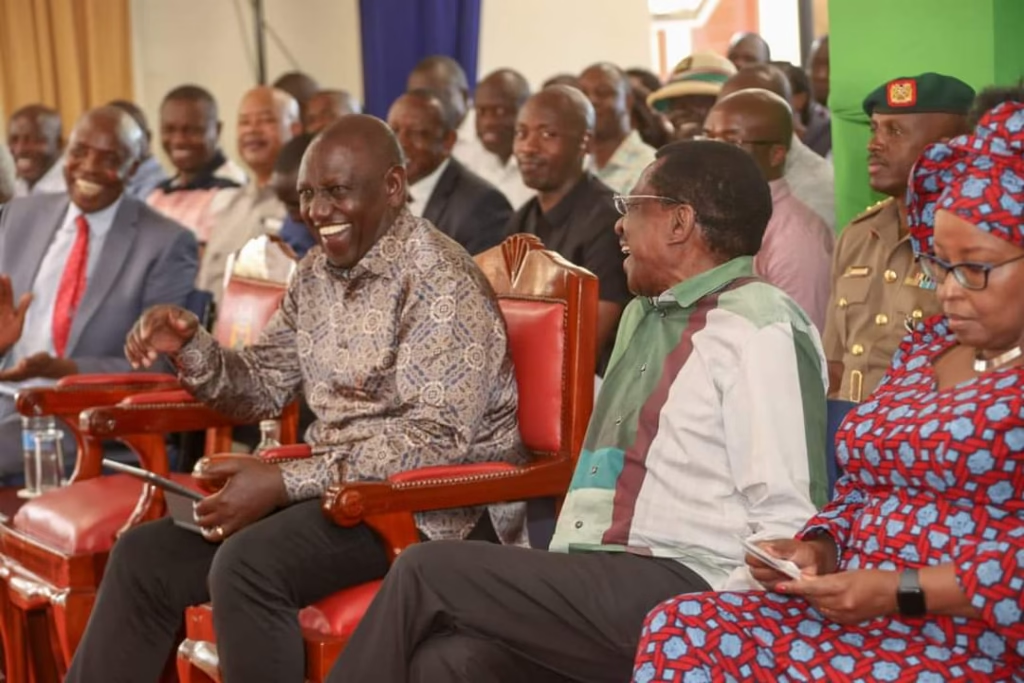
In Homa Bay County on Friday, April 25, 2025, former Prime Minister and Orange Democratic Movement (ODM) leader Raila Odinga publicly came to the defence of Siaya Governor James Orengo, who had recently faced sharp criticism for his outspoken remarks on the “broad-based government” agreement between ODM and the United Democratic Alliance (UDA).
Speaking at the burial of Priscillah Koyo, Raila urged political opponents to cease their attacks, stressing that Governor Orengo had exercised his democratic right without breaching any laws.
In mid-April, Governor Orengo had labelled the burgeoning collaboration between ODM and UDA an “abomination,” warning that close ties risked entangling the opposition in the failures of President William Ruto’s administration.
He also accused the national government of undermining devolution by retaining functions and funds meant for county governments. Those remarks prompted UDA-aligned leaders, including Nandi Senator Samson Cherargei, to accuse Orengo of political sabotage and destabilising national unity.
Critics argued that such public dissent threatened the stability of the memorandum of understanding (MoU) Raila signed with President Ruto on March 7, 2025, which outlined ten priority areas among them devolution, economic growth, and governance reforms.
Some within ODM even questioned whether the MoU had inadvertently created a rift between Raila’s top lieutenants and the party’s grassroots, as James Orengo and Kisumu Governor Anyang’ Nyong’o continued to critique aspects of the broad-based government.
Raila Odinga countered these accusations by reminding detractors that Orengo’s comments were rooted in the very MoU he helped negotiate. “When Mr. James Orengo talks, he’s talking on the basis of the MoU between ODM and UDA.
He has not committed any crime; he’s got a democratic right to say what he wants to say,” Raila declared, before extending identical support to Governor Nyong’o’s devolution concerns. By framing their criticisms as consistent with ODM’s principles, Raila reaffirmed his party’s role as a responsible opposition capable of holding government accountable while engaging in strategic partnerships.
These events echo earlier tensions in February and March, when some party members worried that the MoU blurred the lines between government and opposition, potentially undermining ODM’s core identity.
However, by staunchly defending Orengo and Nyong’o, Raila has sent a clear message: strategic cooperation with the ruling party does not preclude rigorous scrutiny of its policies or curtail the freedom of ODM governors to advocate for county interests .
As the political season intensifies ahead of the 2027 general election cycle, Raila’s defence of James Orengo underscores a balancing act between collaboration and accountability one that will test the resilience of Kenya’s multi-party democracy and the adaptability of its leading political figures.